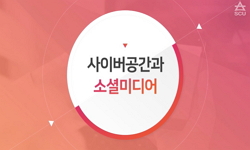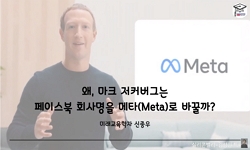The use of social media in government has expanded steadily around the world on the basis of Web 2.0 technology. The government uses social media as a tool for enhancing transparency, participation, collaboration, and saving costs. However, the use of...
http://chineseinput.net/에서 pinyin(병음)방식으로 중국어를 변환할 수 있습니다.
변환된 중국어를 복사하여 사용하시면 됩니다.
- 中文 을 입력하시려면 zhongwen을 입력하시고 space를누르시면됩니다.
- 北京 을 입력하시려면 beijing을 입력하시고 space를 누르시면 됩니다.
https://www.riss.kr/link?id=A106371602
- 저자
- 발행기관
- 학술지명
- 권호사항
-
발행연도
2019
-
작성언어
English
- 주제어
-
등재정보
KCI등재
-
자료형태
학술저널
- 발행기관 URL
-
수록면
36-52(17쪽)
-
KCI 피인용횟수
0
- DOI식별코드
- 제공처
-
소장기관
-
강원대학교 중앙도서관

-
건국대학교 상허기념중앙도서관

-
경북대학교 중앙도서관

-
계명대학교 동산도서관

-
고려대학교 도서관

-
남서울대학교 성암기념중앙도서관

-
동국대학교 중앙도서관

-
명지대학교 자연캠퍼스 도서관

-
서울대학교 중앙도서관

-
성신여자대학교 중앙도서관

-
숙명여자대학교 중앙도서관

-
연세대학교 학술문화처 도서관

-
연세대학교 학술문화처 도서관

-
영남대학교 중앙도서관

-
영남대학교 중앙도서관

-
이화여자대학교 중앙도서관

-
전남대학교 여수캠퍼스 도서관

-
전남대학교 중앙도서관

-
전북대학교 중앙도서관

-
전주대학교 학술정보관

-
충남대학교 중앙도서관

-
호서대학교(아산) 학술지원과

-
홍익대학교 중앙도서관

-
강원대학교 중앙도서관
-
0
상세조회 -
0
다운로드
부가정보
다국어 초록 (Multilingual Abstract)
The use of social media in government has expanded steadily around the world on the basis of Web 2.0 technology. The government uses social media as a tool for enhancing transparency, participation, collaboration, and saving costs. However, the use of social media in the public sector has not only been positive. It has also been described as a double-edged sword. Most local governments in South Korea use social media for a variety of reasons but there has not been enough practical study of the effectiveness of social media use in the public sector. Local governments generally have positive views of their social media use but the real application of social media is not consistent in each local government. This study tried to determine the reality of social media use in local government and what factors influenced its use. The research analyzed the data from a survey conducted by the Korea Local Information Research & Development Institute (KLID) in 2015 and data from Facebook in each local government. The results show that most local governments were using Facebook for promotional purposes and local government officials similarly recognized that they were using Facebook well. However, local governments showed great differences in their use and practical effect. Meanwhile, the study found that population, financial independence, level of government, the entity operating social media, the median age, and whether social media are used for interaction or to gather opinions were the most influential factors that make a difference in utilization in local government.
참고문헌 (Reference)
1 남기범, "한미 국방관련 정부조직의 소셜미디어 비교연구: 소셜미디어 성숙도 모형을 중심으로-" 한국비교정부학회 17 (17): 71-91, 2013
2 최상한, "지방정부의 소셜미디어로 주민참여는 실현 가능한가?" 한국지방정부학회 17 (17): 415-440, 2013
3 서진완, "지방자치단체의 소셜미디어 활용 현황 분석과 의미" 한국행정학회 46 (46): 131-155, 2012
4 남기범, "지방자치단체의 소셜미디어 정책의 도입방안에 관한 연구 -외국사례 분석을 중심으로-" 한국비교정부학회 15 (15): 79-102, 2011
5 김민경, "정부기관의 SNS 활용 및 수용자 반응 분석: 청와대와 17부 페이스북을 중심으로" 한국PR학회 19 (19): 1-37, 2015
6 김종무, "전자정부 웹사이트(Website)의 운영성과에 영향을 미치는 요인" 한국행정학회 37 (37): 331-356, 2003
7 김구, "자치단체장의 개인적 특성과 지역특성이 지방정부의 정보화인력에 미치는 영향" 한국지방정부학회 16 (16): 79-98, 2013
8 진상기, "우리나라 웹 접근성 정책 영향요인 분석 -16개 광역자치단체 패널데이터를 중심으로-" 한국정보화진흥원 18 (18): 42-58, 2011
9 김위근, "소셜네트워크서비스의 이용동기가 실제 이용과 메시지 특성 인식에 미치는 영향: ‘페이스북’, ‘트위터’, ‘싸이월드’, ‘미투데이’의 비교를 중심으로" 한국언론정보학회 60 (60): 150-171, 2012
10 임희경, "소셜 미디어의 이용행태 및 소셜 디바이드 현황 분석-소셜 미디어 접근과 이용 격차를 중심으로" 사회과학연구소 30 (30): 143-164, 2014
1 남기범, "한미 국방관련 정부조직의 소셜미디어 비교연구: 소셜미디어 성숙도 모형을 중심으로-" 한국비교정부학회 17 (17): 71-91, 2013
2 최상한, "지방정부의 소셜미디어로 주민참여는 실현 가능한가?" 한국지방정부학회 17 (17): 415-440, 2013
3 서진완, "지방자치단체의 소셜미디어 활용 현황 분석과 의미" 한국행정학회 46 (46): 131-155, 2012
4 남기범, "지방자치단체의 소셜미디어 정책의 도입방안에 관한 연구 -외국사례 분석을 중심으로-" 한국비교정부학회 15 (15): 79-102, 2011
5 김민경, "정부기관의 SNS 활용 및 수용자 반응 분석: 청와대와 17부 페이스북을 중심으로" 한국PR학회 19 (19): 1-37, 2015
6 김종무, "전자정부 웹사이트(Website)의 운영성과에 영향을 미치는 요인" 한국행정학회 37 (37): 331-356, 2003
7 김구, "자치단체장의 개인적 특성과 지역특성이 지방정부의 정보화인력에 미치는 영향" 한국지방정부학회 16 (16): 79-98, 2013
8 진상기, "우리나라 웹 접근성 정책 영향요인 분석 -16개 광역자치단체 패널데이터를 중심으로-" 한국정보화진흥원 18 (18): 42-58, 2011
9 김위근, "소셜네트워크서비스의 이용동기가 실제 이용과 메시지 특성 인식에 미치는 영향: ‘페이스북’, ‘트위터’, ‘싸이월드’, ‘미투데이’의 비교를 중심으로" 한국언론정보학회 60 (60): 150-171, 2012
10 임희경, "소셜 미디어의 이용행태 및 소셜 디바이드 현황 분석-소셜 미디어 접근과 이용 격차를 중심으로" 사회과학연구소 30 (30): 143-164, 2014
11 허진희, "소셜 미디어 활용에 따른 정부신뢰와 효능감의 변화: 대학생층을 중심으로" 한국국정관리학회 24 (24): 267-293, 2014
12 윤정미, "소셜 네트워크 서비스 간 유사성과 서비스 선호도에 관한 포지셔닝 분석" 한국방송학회 26 (26): 416-457, 2012
13 권오성, "민선지방자치제도의 실시가 시 정부의 재정분권화에 미치는 영향: 59개 시 정부를 중심으로 한 실증연구" 한국행정학회 38 (38): 137-154, 2004
14 최정민, "관료의 정보공개행태 영향 요인 연구" 서울대학교 행정대학원 2013
15 Ryu, H., "The Twitter Craze and the Evolution of Social Media" KT Economy Management Research Center 2009
16 Bertot, J., "The Impact of Polices on Government Social Media Usage: Issues, Challenges, and Recommendations" 29 : 30-40, 2013
17 Ellison, N., "The Benefits of Facebook “Friends”: Social Capital and College Students Use of Online Social Network Sites" 12 (12): 1143-1168, 2007
18 Zavattro, S., "Social Media for Government: Theory and Practice" Routledge 2016
19 KLID, "Social Media Use and Future Development Plan in Local Governments" Korea Local Information Rewearch &Development Institute 2015
20 Reddick, C., "Social Media Sdoption at the American Grass Roots: Web 2.0 or 1.5" 30 : 498-507, 2013
21 Utz, S., "Social Information Processing in MUDs: The Development of Friendships in Virtual Worlds" 1 (1): 2000
22 Shin, S., "SNS Usage Status" 13 (13): 11-15, 2013
23 Ferro, E., "Policy Making 2.0: from Theory to Practice" 30 (30): 359-368, 2013
24 Tapscott, D., "Grown Up Digital: How the Net Generation Is Changing Your World" McGraw-Hill 2009
25 Landsbergen, D., "Government as Part of the Revolution: Using Social Media to Achieve Public Goals" 8 (8): 135-147, 2010
26 Criado, J., "Government Innovation through Social Media" 30 : 319-326, 2013
27 Chun, S., "Government 2.0: Making Connections between Citizens, Data and Government" 15 (15): 1-9, 2010
28 Mergel, I., "Gov 2.0 Revisited: Social Media Strategies in the Public Sector" 33 (33): 2010
29 Linders, D., "From e-government to wegovernment: Defining a Typology for Citizen Coproduction in the Age of Social Media" 29 : 446-454, 2012
30 Guillam´on, M., "Factors Influencing Social Media Use in Local Governments: The Case of Italy and Spain" 33 : 460-471, 2016
31 Hrdinova, J., "Designing Social Media Policy for Government" 4 : 1-9, 2011
32 Hilgers, D., "Citizensourcing:Applying the Concept of Open Innovation to the Public Sector" 4 (4): 67-88, 2010
33 Han, S., "A Study on the Evaluation Model of Regional Informatization Policy" 3 (3): 1-19, 2000
34 Mergel, I., "A Framework for Interpreting social media Interactions in the Public Sector" 30 : 327-334, 2013
35 KISA, "2016 Survey on the Internet Usage" Korea Internet & Security Agency 2017
동일학술지(권/호) 다른 논문
-
4차 산업혁명시대 인공지능 정책의사결정에 대한 탐색적 논의
- 한국정보화진흥원
- 서형준
- 2019
- KCI등재
-
장애인의 정보 활용 격차가 삶의 만족도에 미치는 영향에 관한 연구
- 한국정보화진흥원
- 황주희
- 2019
- KCI등재
-
스마트 도시(Smart City)의 데이터 경제 구현을 위한 개인정보보호 적용설계(PbD)의 도입 필요성 분석
- 한국정보화진흥원
- 진상기
- 2019
- KCI등재
-
컨테이너 자동편성 플랫폼을 활용한 개방형 클라우드 플랫폼 생태계 전략
- 한국정보화진흥원
- 정기봉
- 2019
- KCI등재
분석정보
인용정보 인용지수 설명보기
학술지 이력
| 연월일 | 이력구분 | 이력상세 | 등재구분 |
|---|---|---|---|
| 2026 | 평가예정 | 재인증평가 신청대상 (재인증) | |
| 2020-01-01 | 평가 | 등재학술지 유지 (재인증) |  |
| 2017-01-01 | 평가 | 등재학술지 유지 (계속평가) |  |
| 2013-01-01 | 평가 | 등재학술지 유지 (등재유지) |  |
| 2010-01-11 | 학회명변경 | 한글명 : 한국정보사회진흥원 -> 한국정보화진흥원 |  |
| 2010-01-01 | 평가 | 등재학술지 유지 (등재유지) |  |
| 2008-06-19 | 학술지명변경 | 외국어명 : 미등록 -> Informatization Policy |  |
| 2008-01-01 | 평가 | 등재학술지 유지 (등재유지) |  |
| 2007-04-19 | 학회명변경 | 한글명 : 한국전산원 -> 한국정보사회진흥원영문명 : 미등록 -> National Information Society Agency |  |
| 2005-05-28 | 학술지등록 | 한글명 : 정보화정책외국어명 : 미등록 |  |
| 2005-01-01 | 평가 | 등재학술지 선정 (등재후보2차) |  |
| 2004-01-01 | 평가 | 등재후보 1차 PASS (등재후보1차) |  |
| 2003-01-01 | 평가 | 등재후보학술지 유지 (등재후보1차) |  |
| 2002-01-01 | 평가 | 등재후보학술지 유지 (등재후보1차) |  |
| 2000-07-01 | 평가 | 등재후보학술지 선정 (신규평가) |  |
학술지 인용정보
| 기준연도 | WOS-KCI 통합IF(2년) | KCIF(2년) | KCIF(3년) |
|---|---|---|---|
| 2016 | 1.55 | 1.55 | 1.54 |
| KCIF(4년) | KCIF(5년) | 중심성지수(3년) | 즉시성지수 |
| 1.44 | 1.31 | 1.756 | 1.1 |




 ScienceON
ScienceON






